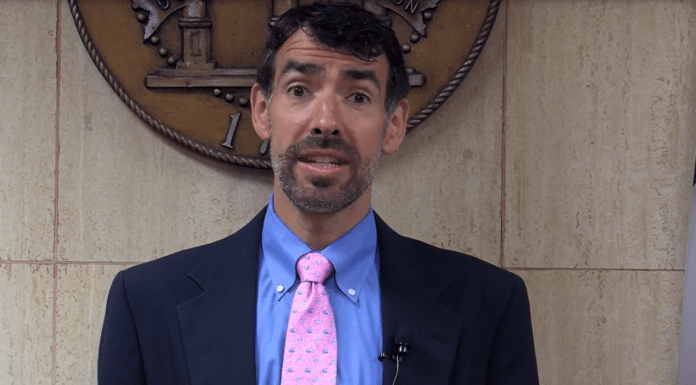(Molly Bruns, Headline USA) A judge in Georgia overturned a state heartbeat law banning abortion for prenatal children with a detectable heartbeat, around the fifth or sixth week of gestation.
According to the Daily Wire, Fulton County Superior Court Judge Robert McBurney ruled in favor of the SisterSong Women of Color Reproductive Justice Collective, who argued that parts of the law were unconstitutional since they were passed while the now-overturned Roe v. Wade precedent was still in effect nationally, establishing a federal abortion mandate.
It is not uncommon for states to establish their own laws, notwithstanding federal supremacy, in the event of such a reversal. Several states had abortion laws on the books from prior to the 1973 passage of Roe that reverted back in the aftermath of the Dobbs v. Jackson Women’s Health decision.
However McBurney decreed that he alone had the authority to determine the law and not the duly elected legislative and executive branches.
“What does this ruling mean?” McBurney wrote. “Most fundamentally, it means that courts—not legislatures—define the law.”
“If the courts have spoken, clearly and directly, as to what the law is, as to what is and is not constitutional, legislatures and legislators are not at liberty to pass laws contrary to such pronouncements,” he added.
McBurney picked apart he law, known as the Living Infants Fairness and Equality (LIFE) Act, in a 15 page report, declaring that it is unconstitutional to ban abortions before the child is “viable,” while insisting that the prior Roe standard remained the applicable case law.
“Everywhere in America, including Georgia, it was unequivocally unconstitutional for governments—federal, state, or local—to ban abortions before viability,” the report reads.
McBurney did not define viability in the report, making it unclear whether the child needs to simply be able to survive outside of the womb, whether the child must be able to live completely independently from its mother or whether a child in need of medical intervention post-birth would not be considered viable.
Andrew Isenhour, a spokesperson for Georgia Gov. Brian Kemp, made a statement regarding the judge’s sentiments.
“The personal beliefs of a judge will rule over the legislature and people of Georgia,” he said. “… We will continue to fight for the lives of Georgia’s unborn children.”
Isenhour also explained that the state filed a notice of appeal immediately following the ruling.
Noah Brandt, vice president of communications for pro-life non-profit Live Action, countered the judge’s ruling by arguing the constitutionality of the LIFE Act.
“The Supreme Court overturned Roe v. Wade through their decision in Dobbs, and therefore, state lawmakers have the constitutional prerogative to completely abolish the horrific scandal of abortion,” Brandt said.
“This judge is clearly wrong, and I suspect the ruling will be swiftly corrected by a higher court.”

